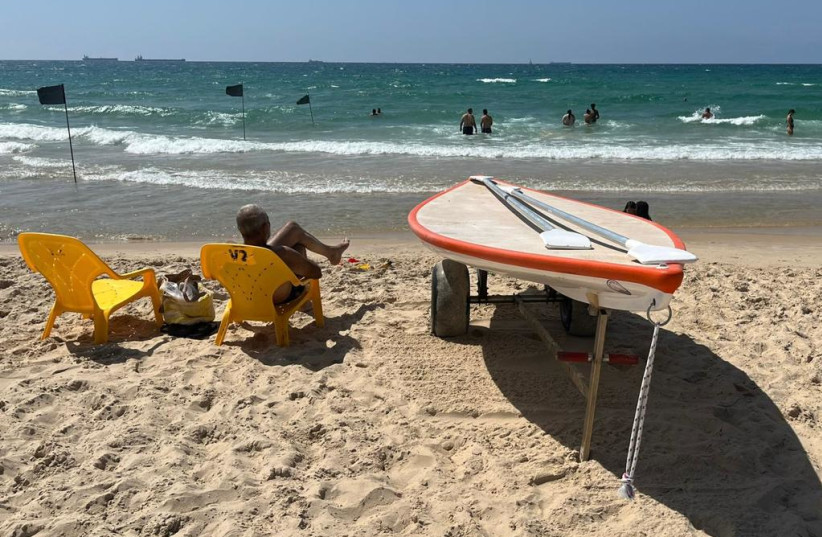An extreme heatwave hit Israel on Thursday and is expected to continue throughout the coming days.
Most of the country will experience temperatures ranging from 91-96F (about 33-36C), while a number of locations in southern Israel, the Judean Mountains, the Jordan Valley, and near the Kinneret will be hit by temperatures 100-109F (38-43C).
Dr. Amit Savir of the Israel Meteorological Service stressed that while the daytime will be very hot, the nights will be more comfortable due to dry conditions. While the highest temperatures will be in the inner parts of the country and lower temperatures are forecast along the coast, the humidity along the coast will contribute to the intensity of the heat.
According to the Israel Meteorological Service, the heatwave is forecast to continue into the middle of next week. The extreme heatwave is expected to impact a large part of the Mediterranean region as well.
In Jerusalem, temperatures will range between 72-97F (22-36C). In Tel Aviv, temperatures will range between 75-90F (24-32C). In Haifa, temperatures will range between 77-88F (25-31C). In Tiberias, temperatures will range between 73-108F (23-42C). In Kiryat Shmona, temperatures will range between 66-95F (19-35C). In Beersheba, temperatures will range between 70-97F (21-36C). In Eilat, temperatures will range between 82-109F (28-43C).

Health Ministry urges caution due to heavy heat
In light of the heatwave, the Health Ministry called on the general public, and especially the elderly population and patients with chronic diseases, to be cautious and avoid exposure to the heat and the sun as much as possible, to avoid unnecessary physical exertion, and to make sure to drink water.
The ministry noted that there is an increased risk of heatstroke, especially among the elderly, infants, toddlers, patients with cardiovascular diseases, obese people, patients with chronic diseases, patients on certain medications, and people suffering from acute illness or dehydration.
Signs of heatstroke include a body temperature above 103F (39.5C), red, hot, and dry skin, rapid pulse, severe headache, palpitations, dizziness, nausea, confusion, and loss of consciousness. Anyone suffering from those signs should call emergency services and receive treatment immediately.
Until help arrives, the patient should stay in a cool and shady area and try and cool their body. Patients suffering from heatstroke should not drink and will instead receive fluids through an IV.
Fire and Rescue Services ban fires in open areas
Additionally, due to the extreme heat, the Fire and Rescue Services issued an order prohibiting the lighting of fires in open areas starting Thursday, as the heat increases the likelihood of life-threatening fires.
The order is in place until Tuesday morning. The order includes any activity involving setting a fire, including technical works that could create sparks that could light a fire.
The Fire and Rescue Services are preparing for the extreme weather and the Services' aerial firefighting squadron is on special alert and will conduct proactive patrols.
Since the beginning of the summer, the Fire and Rescue Services have had to deal with three unusual weather events in which there were hundreds of fires per day on multiple fronts.
Fire and Rescue Services commissioner Eyal Caspi stressed that "The global climate crisis threatens countries, companies and leaders and presents us with a complex operational challenge that requires advance preparation and breakthrough thinking for the exploitation of operational power. We intend to act to change the fire safety culture of the country's citizens with the understanding that this is not a passing event. I call on the public to be attentive to the instructions of the order and not to light fires in places that were not designated for it."
